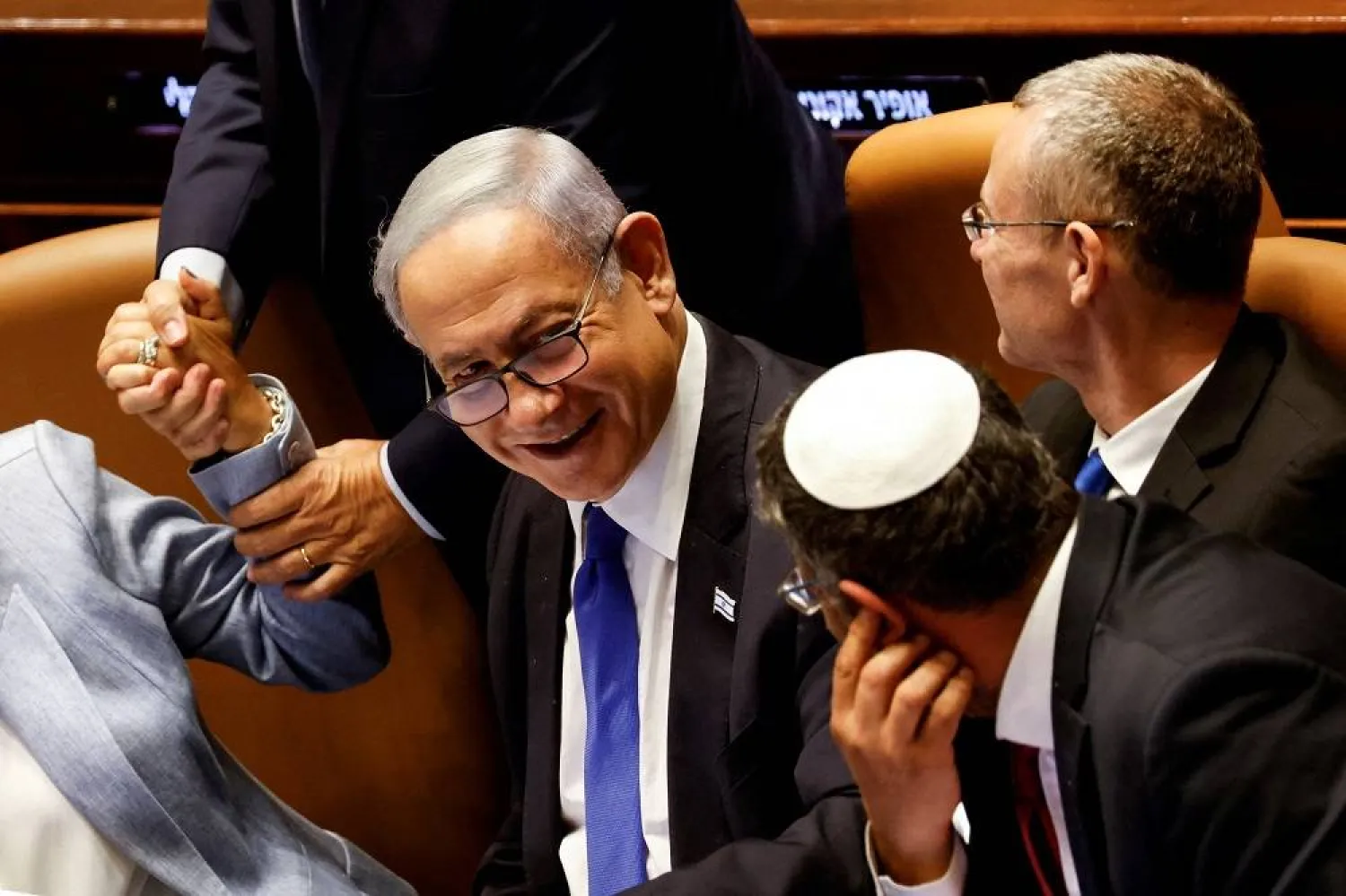Israel's parliament on Monday ratified the first bill of a judicial overhaul sought by Prime Minister Benjamin Netanyahu, after last-gasp compromise efforts collapsed and failed to ease a constitutional crisis convulsing the country for months.
The amendment limiting the Supreme Court's powers to void some government decisions if it deemed them "unreasonable" passed by a 64-to-0 vote after opposition lawmakers abandoned the session in protest, some of them shouting: "For shame!"
It is part of plans the government announced in January, soon after it was sworn in, setting off months of unprecedented nationwide protests and stirring concern among allies abroad for Israel's democratic health.
More deadlock loomed, however. Within minutes of the vote, a political watchdog group and the centrist opposition leader said they would appeal against the law at the Supreme Court.
Hoping to encourage a provisional deal between the religious-nationalist coalition government and opposition parties, the Histadrut labor union threatened to declare a general strike if the government pursued what it called "unilateral" measures.
Still, Justice Minister Yariv Levin, an architect of the reforms package cast by Netanyahu as needed to create more balance among branches of government, sounded undeterred.
"We took the first step in the historic, important process of fixing the justice system and restoring powers that were taken from the government and the Knesset (parliament)," he said in a speech, seemingly ignoring calls from Washington for a compromise.
The crisis has caused a deep divide in Israeli society and has seeped into the military, with protest leaders saying thousands of volunteer reservists would not report for duty if the government continues with the plans and former top brass warning that Israel's war-readiness could be at risk.
The standoff has also weighed on the economy. Tel Aviv's main share indices tumbled more than 2.5% after the vote in Knesset and the shekel extended losses against the dollar to 1.2%.
'Disaster'
Police used a water cannon to disperse demonstrators opposed to the judicial overhaul and officers dragged away protesters who had chained themselves to posts and blocked the road outside parliament. After the vote, police said they were dispersing crowds that marched along and blocked a Jerusalem area highway.
Netanyahu's coalition has been determined to push back against what it describes as overreach by a Supreme Court that it says has become too politically interventionist.
Critics say Monday's amendment has been rushed through parliament and will open the door to abuses of power by removing one of the few effective checks on the executive's authority in a country without a formal written constitution.
"This government can win the battle, but not the war," said opposition leader Yair Lapid, as protests intensified.
Israel's two biggest banks, Leumi and Hapoalim, said they would allow workers to demonstrate on Monday without losing pay.
A forum of some 150 of Israel's largest companies went on strike and Azrieli and Big, two of Israel's largest malls, said stores in their shopping centers would remain closed.









